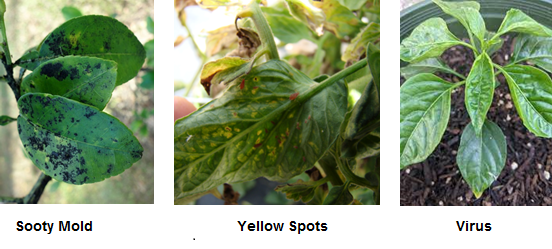案例研究
我們提供植物保護和植物營養產品,幫助建立健康和可持續的糧食系統。
Pest Control in Aphids
Insecticide
Aphids are small, soft-bodied insects that feed by sucking the nutrient-rich liquids out of plants. In large numbers, they can weaken plants significantly, resulting in discolored and withered leaves, harming crops, flowers, and fruits. The sap-sucking insects excrete honeydew and secretions that induces sooty mold. The mold does not infect plants but covers leaves to block light and make photosynthesis less efficient. Moreover, aphids can be a vector of viruses. Plant viruses are easily transmitted through sucking and piercing wounds. Aphids can reproduce throughout the year with or without mating. They multiply in numbers rapidly with such an efficient reproduction strategy. Thus, it is important to control before a population outbreak. Agricultural, physical, and chemical controls are often used for aphid management.
How to control?
Agricultural control: field management matters. Remove weeds and sources of aphids before sowing, prepare the land and sow seeds in time, and cultivate strong seedlings. Keep reasonable planting density to ensure ventilation and light transmission.
Physical control: Repel aphids away by covering the field with silver reflective mulches; Trap and starve aphids to death by using their tropism to specific wavelengths of light. The yellow sticky capturing board could really help.
Chemical control: Sunjoy Agro recommends the use of Aphistar (Acetamiprid 150g/L + Flonicamid 100g/L OD) to control aphids, especially at the peak of aphid nymphs, spray evenly on the tender shoots and leaves. Acetamiprid acts on the nicotinic acetylcholine receptors at the synapses of the insect nervous system, interfering with the stimulation conduction of the insect nervous system, causing the blockage of the nervous system pathways, resulting in the accumulation of the neurotransmitter acetylcholine at the synaptic site, and finally paralyzes insects to death. Flonicamid has contact and stomach poisoning effects. Aphids stop feeding shortly after ingesting the active ingredient and eventually die of starvation. The combination of the two modes of action makes the formulation have great systemic absorption, contact killing, and stomach toxicity, quick-acting, and long-lasting effect. Furthermore, there is negative or very low cross-resistance between Flonicamid and the existing pesticides, so the product is a good choice for resistance management.

探索更多




